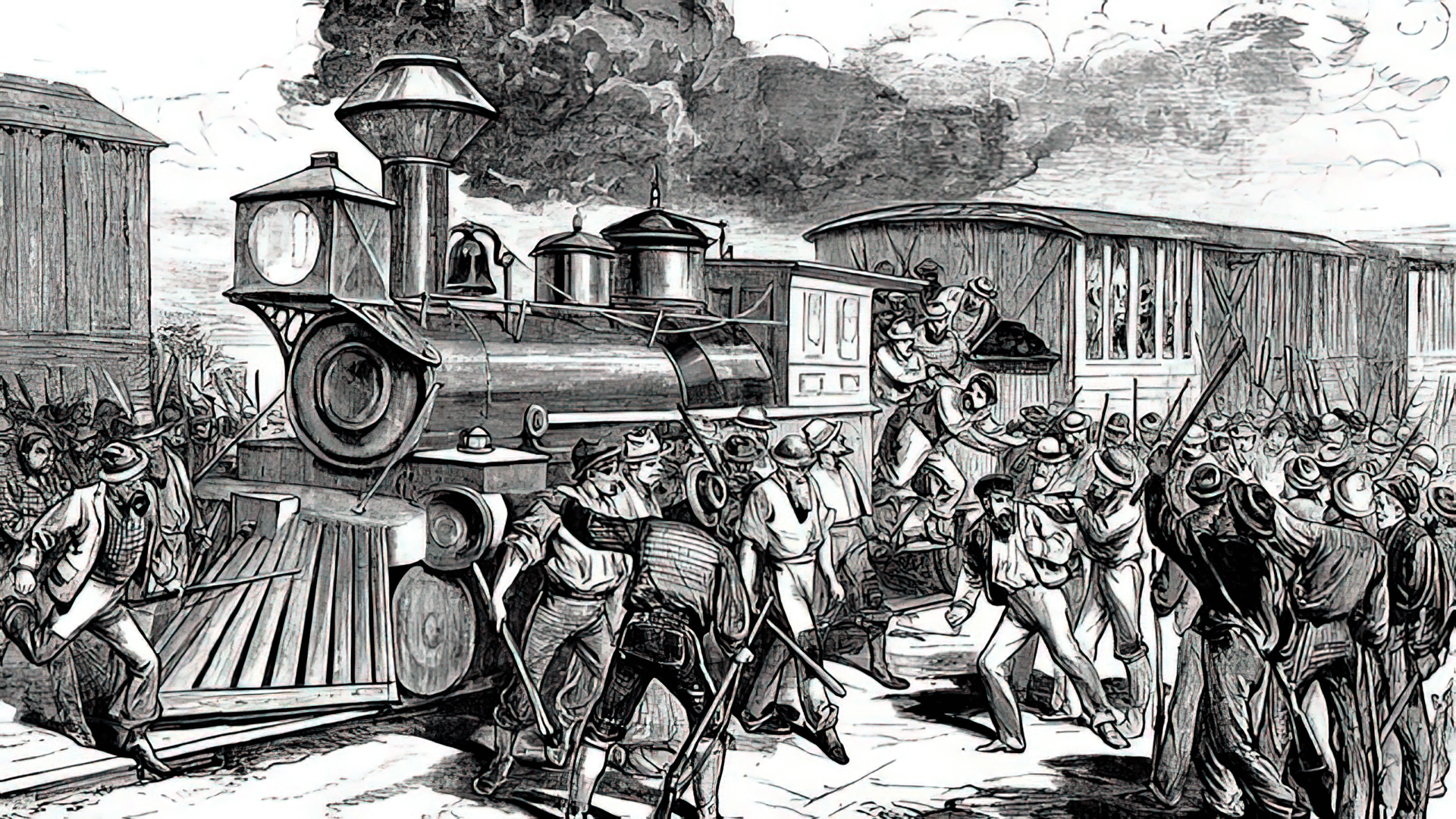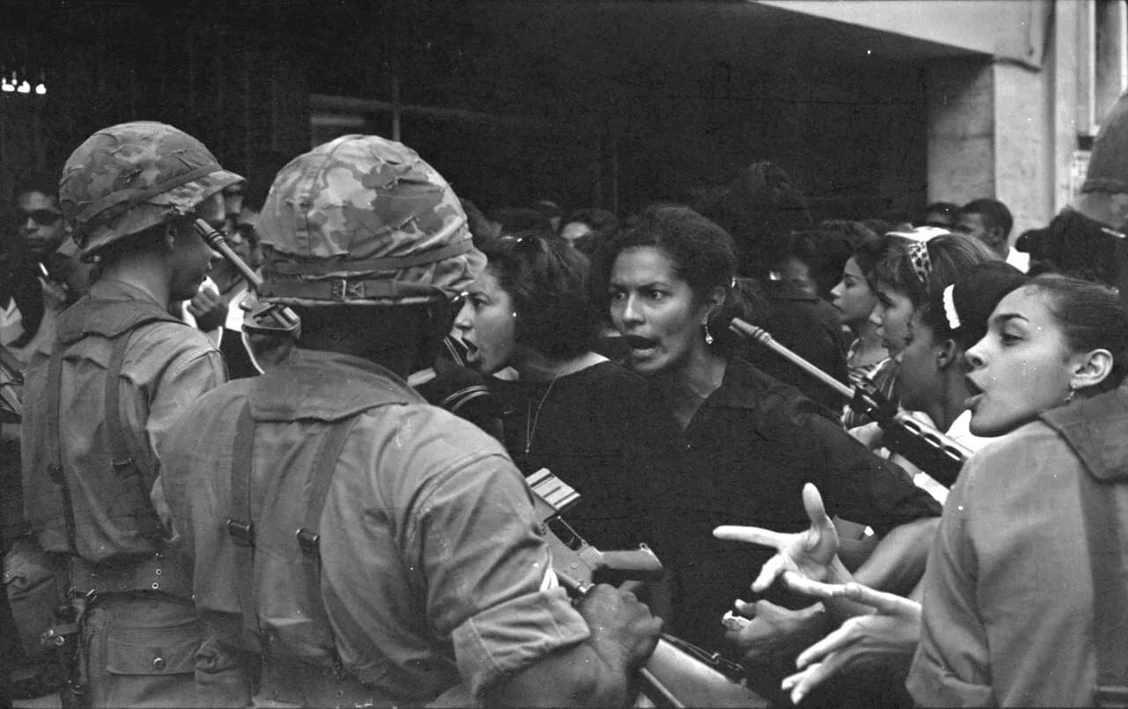US History
Reading Du Bois’s Black Reconstruction
Online: Zoom link will be provided to registered participantsA close reading over 10 weeks of W.E.B. Du Bois's classic work, Black Reconstruction, with Sean Ahern. The book provides a basis for a much overdue revolution in US labor history. As Du Bois so eloquently and bluntly put in in 1935: “The South, after the war, presented the greatest opportunity for a real national labor movement which the nation ever saw or is likely to see again for many decades. Yet, the labor movement, with but few exceptions, never realized the situation. It never had the intelligence or knowledge, as a whole, to see in black slavery and Reconstruction, the kernel and meaning of the labor movement in the United States.”
Reading Du Bois’s Black Reconstruction
Online: Zoom link will be provided to registered participantsA close reading over 10 weeks of W.E.B. Du Bois's classic work, Black Reconstruction, with Sean Ahern. The book provides a basis for a much overdue revolution in US labor history. As Du Bois so eloquently and bluntly put in in 1935: “The South, after the war, presented the greatest opportunity for a real national labor movement which the nation ever saw or is likely to see again for many decades. Yet, the labor movement, with but few exceptions, never realized the situation. It never had the intelligence or knowledge, as a whole, to see in black slavery and Reconstruction, the kernel and meaning of the labor movement in the United States.”
Reading Du Bois’s Black Reconstruction
Online: Zoom link will be provided to registered participantsA close reading over 10 weeks of W.E.B. Du Bois's classic work, Black Reconstruction, with Sean Ahern. The book provides a basis for a much overdue revolution in US labor history. As Du Bois so eloquently and bluntly put in in 1935: “The South, after the war, presented the greatest opportunity for a real national labor movement which the nation ever saw or is likely to see again for many decades. Yet, the labor movement, with but few exceptions, never realized the situation. It never had the intelligence or knowledge, as a whole, to see in black slavery and Reconstruction, the kernel and meaning of the labor movement in the United States.”
Reading Du Bois’s Black Reconstruction
Online: Zoom link will be provided to registered participantsA close reading over 10 weeks of W.E.B. Du Bois's classic work, Black Reconstruction, with Sean Ahern. The book provides a basis for a much overdue revolution in US labor history. As Du Bois so eloquently and bluntly put in in 1935: “The South, after the war, presented the greatest opportunity for a real national labor movement which the nation ever saw or is likely to see again for many decades. Yet, the labor movement, with but few exceptions, never realized the situation. It never had the intelligence or knowledge, as a whole, to see in black slavery and Reconstruction, the kernel and meaning of the labor movement in the United States.”
Reading Du Bois’s Black Reconstruction
Online: Zoom link will be provided to registered participantsA close reading over 10 weeks of W.E.B. Du Bois's classic work, Black Reconstruction, with Sean Ahern. The book provides a basis for a much overdue revolution in US labor history. As Du Bois so eloquently and bluntly put in in 1935: “The South, after the war, presented the greatest opportunity for a real national labor movement which the nation ever saw or is likely to see again for many decades. Yet, the labor movement, with but few exceptions, never realized the situation. It never had the intelligence or knowledge, as a whole, to see in black slavery and Reconstruction, the kernel and meaning of the labor movement in the United States.”
Reading Du Bois’s Black Reconstruction
Online: Zoom link will be provided to registered participantsA close reading over 10 weeks of W.E.B. Du Bois's classic work, Black Reconstruction, with Sean Ahern. The book provides a basis for a much overdue revolution in US labor history. As Du Bois so eloquently and bluntly put in in 1935: “The South, after the war, presented the greatest opportunity for a real national labor movement which the nation ever saw or is likely to see again for many decades. Yet, the labor movement, with but few exceptions, never realized the situation. It never had the intelligence or knowledge, as a whole, to see in black slavery and Reconstruction, the kernel and meaning of the labor movement in the United States.”
‘The Man Who Changed Colors’
Recording available on YouTubeVideo available at https://youtu.be/ABOczzUs8nQ
Bill Fletcher Jr's 'The Man Who Changed Colors' delves into the complicated relationships between Cape Verdean Americans and African Americans, Portuguese fascist gangs, and abusive shipyard working conditions. When a dockworker falls to his death under strange circumstances, investigative journalist David Gomes is on the case. His dogged pursuit of the truth puts his life in danger and upends the scrappy Cape Cod newspaper he works for.
Reading Du Bois’s Black Reconstruction
Online: Zoom link will be provided to registered participantsA close reading over 10 weeks of W.E.B. Du Bois's classic work, Black Reconstruction, with Sean Ahern. The book provides a basis for a much overdue revolution in US labor history. As Du Bois so eloquently and bluntly put in in 1935: “The South, after the war, presented the greatest opportunity for a real national labor movement which the nation ever saw or is likely to see again for many decades. Yet, the labor movement, with but few exceptions, never realized the situation. It never had the intelligence or knowledge, as a whole, to see in black slavery and Reconstruction, the kernel and meaning of the labor movement in the United States.”
Reading Du Bois’s Black Reconstruction
Online: Zoom link will be provided to registered participantsA close reading over 10 weeks of W.E.B. Du Bois's classic work, Black Reconstruction, with Sean Ahern. The book provides a basis for a much overdue revolution in US labor history. As Du Bois so eloquently and bluntly put in in 1935: “The South, after the war, presented the greatest opportunity for a real national labor movement which the nation ever saw or is likely to see again for many decades. Yet, the labor movement, with but few exceptions, never realized the situation. It never had the intelligence or knowledge, as a whole, to see in black slavery and Reconstruction, the kernel and meaning of the labor movement in the United States.”
Reading Du Bois’s Black Reconstruction
Online: Zoom link will be provided to registered participantsA close reading over 10 weeks of W.E.B. Du Bois's classic work, Black Reconstruction, with Sean Ahern. The book provides a basis for a much overdue revolution in US labor history. As Du Bois so eloquently and bluntly put in in 1935: “The South, after the war, presented the greatest opportunity for a real national labor movement which the nation ever saw or is likely to see again for many decades. Yet, the labor movement, with but few exceptions, never realized the situation. It never had the intelligence or knowledge, as a whole, to see in black slavery and Reconstruction, the kernel and meaning of the labor movement in the United States.”
Theodore Allen’s ‘The Kernel and Meaning’: A Strategic Critique of U.S. Labor History
Online: Zoom link will be provided to registered participantsBefore Theodore W. Allen turned to his magnum opus, The Invention of the White Race, he drafted an essay "The Kernel and Meaning: A Contribution to a Proletarian Critique of U.S. Historiography." In it, he assessed how the industrial bourgeoisie successfully overturned plantation capital's rule while assuring its own ascendancy over the proletariat. Allen reviewed six commonly held explanations as to why, despite favorable objective conditions, the U.S. left and workers movements failed to establish socialism or even a permanent working-class party. Participants in this group will read and discuss the original, 160-page typescript of Allen's unpublished essay.
LA Is Burning with Dennis Broe
Recording available on YouTubeDennis Broe examines the history of LA wildfires to shed light on the ingrained power, the structural class and racial imbalances, and the wanton devastation of a city organized not for its people but for its elites.
State of Emergency in US Higher Education
Recording available on YouTubeAlan Wald presents an overview of the state of emergency in higher education in the United States that recalls earlier eras of extreme political repression, such as McCarthyism in the 1950s. Students, faculty, and staff at US colleges and universities who stand up for Palestinian human rights and stopping the genocide in Gaza are being threatened with deportation and punished by the administrations.
Trump, the State, and Global Capital
Recording available on YouTubeLooking at the early weeks of the Trump regime through a Marxists lens presents a major challenge, but who better to meet it than Steve Maher and Clara Mattei, whose historical analyses of finance capital and the capitalist state have garnered well-deserved praise. Join us as we engage Steve and Clara in an open-ended conversation aimed at bringing some clarity to the burgeoning chaos that is shaking up U.S. and global capitalism and the imperialist state system.
60 Years Since the April Revolution in Santo Domingo
Online: Zoom link will be provided to registered participantsJoin us on May 3 for a panel to commemorate the 6oth anniversary of the April Revolution in Santo Domingo and discuss its political implications, the role of working-class Afro-Dominicans, women, LGBTQ people, Haitian internationalist fighters, socialists, writers and artists as well as the worldwide international solidarity movement that ensued in the face of imperialist onslaught.





